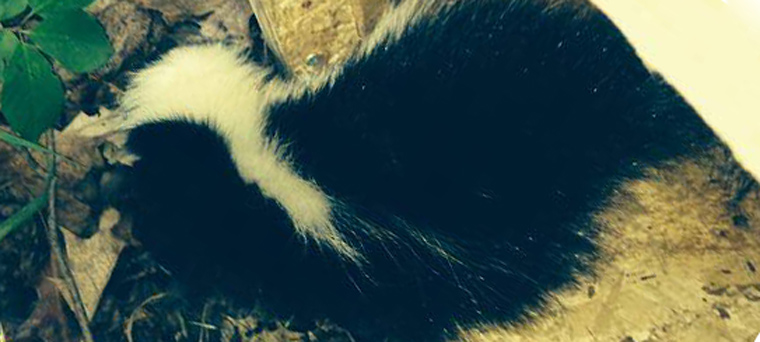-
info@aaanimalcontrol.com
Call us for help in your town
Humane Wildlife Education
What does a skunk's natural diet consist of?
Need skunk removal in your hometown? We service over 500 USA locations! Click here to hire us in your town and check prices - updated for year 2020.
Like many animals that have been able to adapt to the growing urbanization of North America, skunks have a robust digestion system that can handle a variety of different types of food effectively. This means that in the modern world there are many skunks that can be surviving on vastly different diets, but in the areas where skunks thrive the most they will have access to a range of different food sources. However, when they are in rural areas they do have a natural diet which they will revert to if given the opportunity, and this provides a wide range of nutrition.

Vegetation And Fruit
Skunks will generally prefer natural habitats that have some cover for them, so prairies with long grass and woodlands are particularly good for them. In these areas, skunks can find a wide range of different food sources to eat, and they will particularly eat any type of fruit and vegetables that they can discover in these wild areas. These can include berries, corn, small apples and other fruits in these kinds of areas, while nuts are also good food for skunks. While their preference will be for more traditional fruits and vegetables, in some cases where food is scarce, skunks may also eat roots, grasses or leaves to provide some sustenance.
Small Animals That Skunks Can Eat
Because skunks have a robust digestive system, they will also be able to eat all manner of different insects, and depending on the season and the presence of different insect species, they will often eat these animals too. One interesting technique that skunks have developed is to scratch at the entrance to a beehive, and then eat honeybees as they come out of the hive to investigate the noise. As well as eating insects, in some cases there will be skunks that also feed on any carrion that is available, so the carcasses of animals and birds may also be used as a food source if the skunk discovers it.
The Adaptable Nature Of Skunks
One of the reasons that has helped skunks become such a successful species is that they are very resourceful when it comes to finding food, and they are very good at using their claws to gain access to food sources other animals would struggle with. The fact that they are opportunistic can also help them to thrive in many areas, but in the same way it can also make them a nuisance in many ways. Their ability to eat insects mean they can be a real problem for gardeners, covering a green lawn with shallow holes they have made hunting insects, while also stealing fruit from trees and bushes, and even gorging on fallen fruit from trees too.
A Skunk’s Diet In Urban Areas
While the diet of the skunk in naturally wild areas can be varied and seasonal, their ability to find nutrition from a variety of sources has helped the animals to become a real problem when they find their way into urban areas. One of the most common sources of food in these areas will be garbage, as they can easily tear through garbage bags in order to gain access to this type of food.
Keeping Skunks Away From Your Property
When it comes to keeping skunks away from your property, managing the food sources is vital, as this is what will usually attract skunks to the area. Try to make sure any fallen fruit is removed quickly, while making sure the fencing around your garden is in good condition, and doesn’t allow access to these animals. It is also worth making sure that you store any garbage in bins, and pet food in sealed containers rather than in just the sack in a garage or shed.
For more information, you may want to click on one of these guides that I wrote:
How much does skunk removal cost? - get the lowdown on prices.
How to get rid of skunks - my main skunk removal info guide.


















